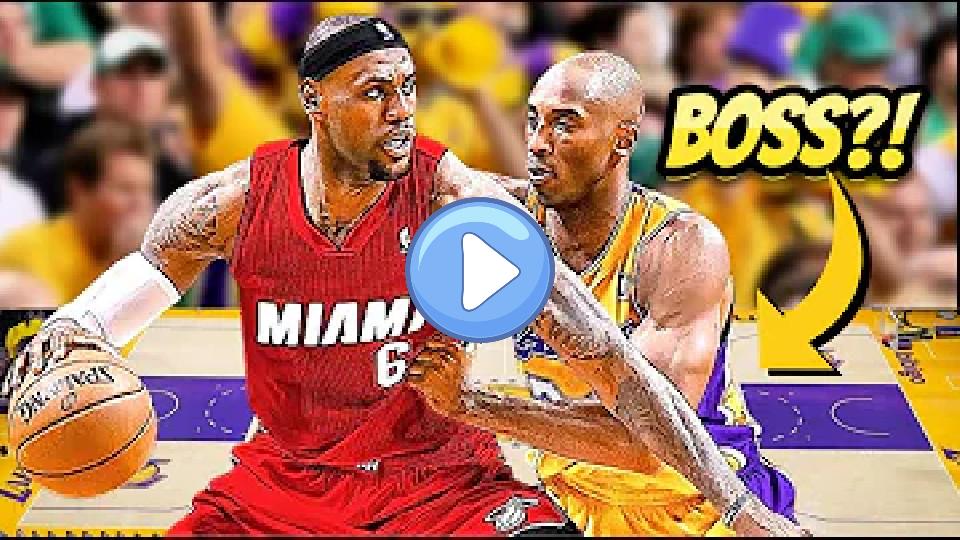Kobe Bryant's Sports Injuries
Type of Sport: Basketball
Kobe Bryant's Sports Injuries Table
| Type | Area | Date | Consequences | Content | How It Happened | Recovery Duration | Rehabilitation Details | Impact On Career | Psychological Impact | Previous Injuries | Return To Competition | Severity | Treatment | Medical Staff | Long Term Impact | Preventive Measures | Competition Missed | Initial Symptoms | Re Injury Risk | Support System | Rehabilitation Location |
|---|---|---|---|---|---|---|---|---|---|---|---|---|---|---|---|---|---|---|---|---|---|
| Calf Injuries | Left Leg | 2013-04-11 | Surgery was required to repair the tendon. | Kobe Bryant's Achilles tear was a significant injury that required immediate surgery. He was 34 years old at the time and in his 17th NBA season. | Bryant tore his Achilles tendon while driving to the basket in a game against the Golden State Warriors. | 8 months | Intensive physical therapy, including strength and flexibility exercises, to regain full function of the leg. | Missed the remainder of the 2012-2013 season and the start of the 2013-2014 season. | The injury tested Bryant's mental toughness and determination to return to the game. | Bryant had dealt with various knee and ankle issues throughout his career. | Returned to play on December 8, 2013. | Severe | Surgery and extensive rehabilitation | Lakers' medical team and renowned orthopedic surgeon Dr. Neal ElAttrache. | Affected his mobility and explosiveness on the court. | Focused on strengthening and conditioning to prevent re-injury. | Missed playoffs and part of the next season. | Sharp pain and inability to push off the foot. | Moderate to high | Family, teammates, and the Lakers organization. | Los Angeles, California |
| Fractures | Right Index Finger | 2009-12-10 | Played through the injury with a splint. | Despite the fracture, Bryant continued to play, showcasing his toughness and dedication. | Bryant fractured his right index finger during a game against the Minnesota Timberwolves. | Did not fully rest, continued playing. | Used a splint and received regular treatment to manage pain and swelling. | Minor, as he continued to play. | Demonstrated his resilience and determination. | Had dealt with other finger injuries before. | Did not miss games. | Moderate | Splint and regular treatment | Lakers' medical team. | Minimal long-term impact. | Protective splints and taping. | None | Pain and swelling in the finger. | Low | Teammates and medical staff. | Los Angeles, California |
| Fractures | Right Knee | 2014-12-13 | Missed the remainder of the 2013-2014 season. | The knee fracture was a significant setback following his return from the Achilles injury. | Bryant suffered a fracture in his right knee during a game against the Memphis Grizzlies. | 6 months | Rehabilitation focused on healing the fracture and regaining knee strength. | Further delayed his return to peak performance. | Another major injury that challenged his resilience. | This occurred after his Achilles tear and added to his injury history. | Returned at the start of the 2014-2015 season. | Severe | Rest, immobilization, and rehabilitation | Lakers' medical team and specialists. | Contributed to the overall wear and tear on his body. | Enhanced knee support and conditioning routines. | Missed the rest of the season. | Pain and swelling in the knee. | Moderate | Family, teammates, and medical staff. | Los Angeles, California |
| Shoulder Injuries | Right Shoulder | 2015-01-20 | Season-ending surgery required. | The rotator cuff tear was another major injury in the latter part of Bryant's career. | Bryant tore his rotator cuff while dunking in a game against the New Orleans Pelicans. | 9 months | Post-surgery rehabilitation focused on restoring shoulder strength and range of motion. | Missed the remainder of the 2014-2015 season. | Added frustration and mental challenge due to multiple injuries. | Followed previous major injuries to his Achilles and knee. | Returned at the start of the 2015-2016 season. | Severe | Surgery and extensive rehabilitation | Lakers' medical team and specialists. | Affected his shooting and overall shoulder function. | Strengthening and conditioning routines to support shoulder stability. | Missed the rest of the season. | Pain and limited range of motion in the shoulder. | Moderate | Family, teammates, and medical staff. | Los Angeles, California |
| Sprains | Left Ankle | 2000-12-20 | Missed several games. | The ankle sprain was one of the many minor injuries Bryant endured during his career. | Bryant sprained his left ankle landing awkwardly after a jump shot. | 2 weeks | Rehabilitation included rest, ice, compression, and elevation (RICE) followed by physical therapy. | Short-term impact, missed a few games. | Minor frustration but remained focused on recovery. | Had a history of ankle issues. | Returned within two weeks. | Moderate | RICE and physical therapy | Lakers' medical team. | No significant long-term impact. | Ankle braces and strengthening exercises. | Missed a few games. | Pain and swelling in the ankle. | Low to moderate | Teammates and medical staff. | Los Angeles, California |
| Sprains | Right Ankle | 2003-03-13 | Missed several games. | Ankle sprains were common for Bryant, given his aggressive playing style. | Bryant sprained his right ankle landing on another player's foot. | 2 weeks | RICE and physical therapy to regain ankle stability. | Short-term impact, missed a few games. | Minor frustration but maintained a positive outlook. | Previous ankle sprains on both ankles. | Returned within two weeks. | Moderate | RICE and physical therapy | Lakers' medical team. | No significant long-term impact. | Ankle braces and strengthening exercises. | Missed a few games. | Pain and swelling in the ankle. | Low to moderate | Teammates and medical staff. | Los Angeles, California |
| Strains | Lower Back | 2015-02-28 | Missed a few games to recover. | Lower back strain was a recurring issue for Bryant, often requiring rest and treatment. | Bryant strained his lower back during a game due to overexertion. | 1 week | Rest and physical therapy to alleviate pain and improve mobility. | Minor, missed a few games. | Managed frustration with focus on recovery. | Had experienced back issues before. | Returned after a week. | Moderate | Rest and physical therapy | Lakers' medical team. | No significant long-term impact. | Core strengthening and flexibility exercises. | Missed a few games. | Pain and stiffness in the lower back. | Moderate | Teammates and medical staff. | Los Angeles, California |
Kobe Bryant's Sports Injuries Videos
Kobe Bryant Discusses Recovery From Injury
On Media Day, Kobe Bryant discusses the progress of his recovery from his torn Achilles tendon injury with Rick Fox. About the NBA: ...
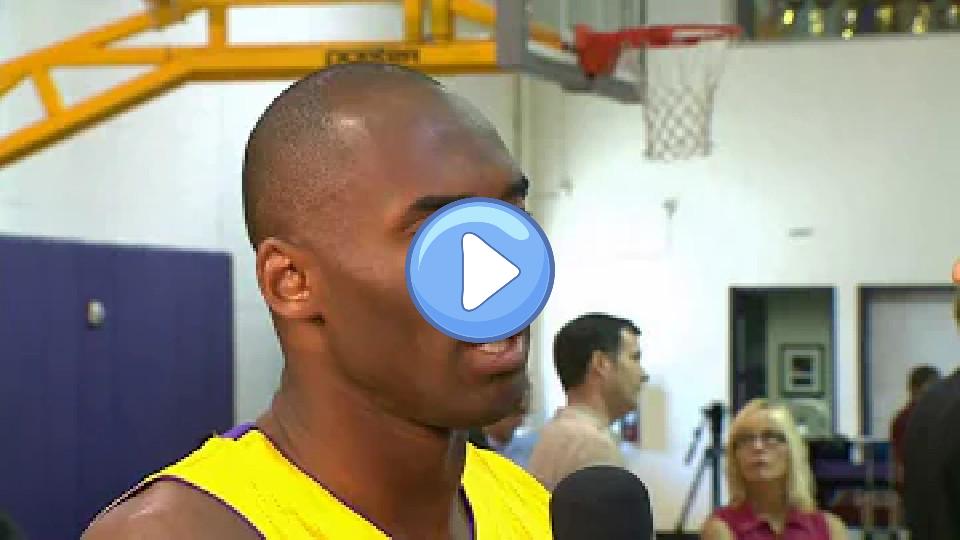
What Gary Vitti Told Kobe Bryant When He Ruptured His Achilles Tendon
Gary Vitti details the events surrounding Kobe Bryant's Achilles tendon rupture. Kobe injured himself in front of the Warriors bench, and Vitti quickly recognized the telltale signs of a torn Achilles. Despite the injury, Kobe attempted to continue playing, even suggesting he could walk on his heel or have it taped up. Vitti allowed Kobe to shoot his free throws to avoid the Warriors choosing a substitute shooter, crucial for their playoff hopes. Kobe walked unassisted to the bench, back to the court to shoot, and then to the training room, displaying immense determination. Once in the training room, Kobe's emotions surfaced, but he soon decided on immediate surgery to start his recovery. Despite medical advice to wait due to bleeding, Kobe was insistent. When his family arrived, Kobe composed himself instantly to appear strong for them.
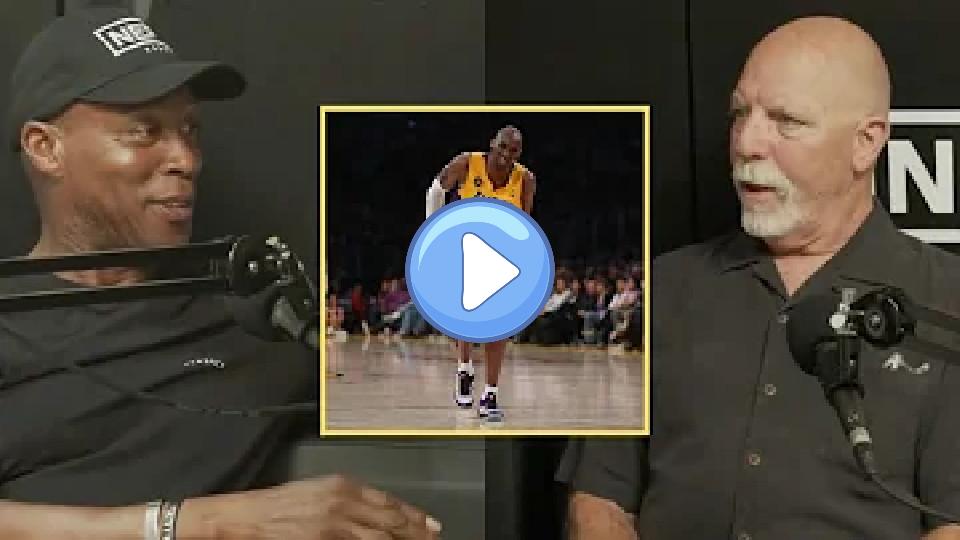
Kobe Bryant: The Journey to Recovery (Achilles Rehabilitation)
The mini-documentary follows Kobe Bryant's journey after tearing his Achilles tendon in 2013. It details the challenges and setbacks he faced, including the Lakers' struggles with injuries during the 2012 season and the pressure on Kobe to perform. Despite playing heavy minutes and enduring significant pain, Kobe pushed through to help secure a playoff spot. The documentary captures the moment he tore his Achilles, his determination to shoot free throws despite the injury, and his mindset during recovery. It highlights Kobe's resilience, his commitment to lead by example for his children, and his relentless work ethic. The film concludes with Kobe's return to the court and his philosophy of continuous improvement, emphasizing his dedication to basketball and his legacy as one of the sport's most tenacious competitors.
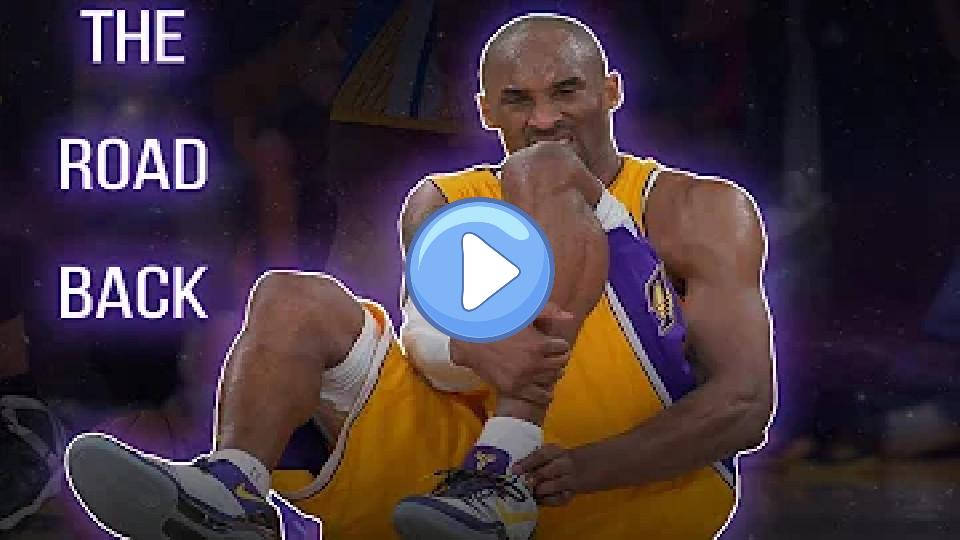
Kobe Bryant's Achilles injury occurred on April 12, 2013, during a game against the Golden State Warriors.
In the game, Kobe Bryant is seen struggling with an injury, limping and appearing in pain. Despite his efforts to continue playing, he eventually cannot proceed due to what seems to be an Achilles injury. Despite the injury, Bryant's determination and resilience are highlighted as he attempts to continue before ultimately leaving the game.
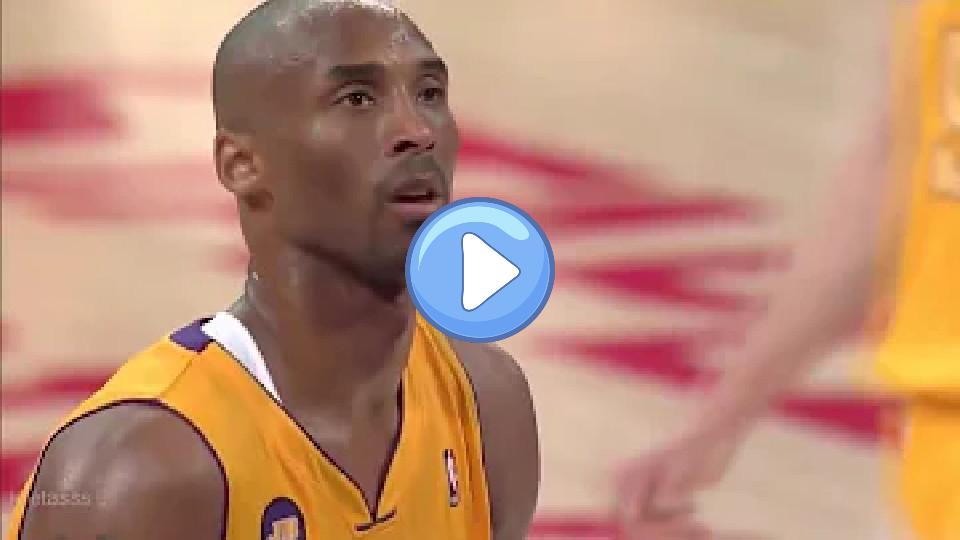
Kobe Bryant's Emotional Facebook Post After Achilles Injury by Jimmy Kimmel | MUST WATCH |
In the video, Jimmy Kimmel discusses a Facebook post by Kobe Bryant following his Achilles injury. In the post, Kobe expresses his frustration and anger about the injury, questioning how he can return as the same player at 35. Despite the pain and uncertainty, he acknowledges that there are bigger challenges in the world and emphasizes the importance of finding a silver lining, maintaining belief, and working hard. He concludes with the "Mamba mentality," highlighting resilience and determination.
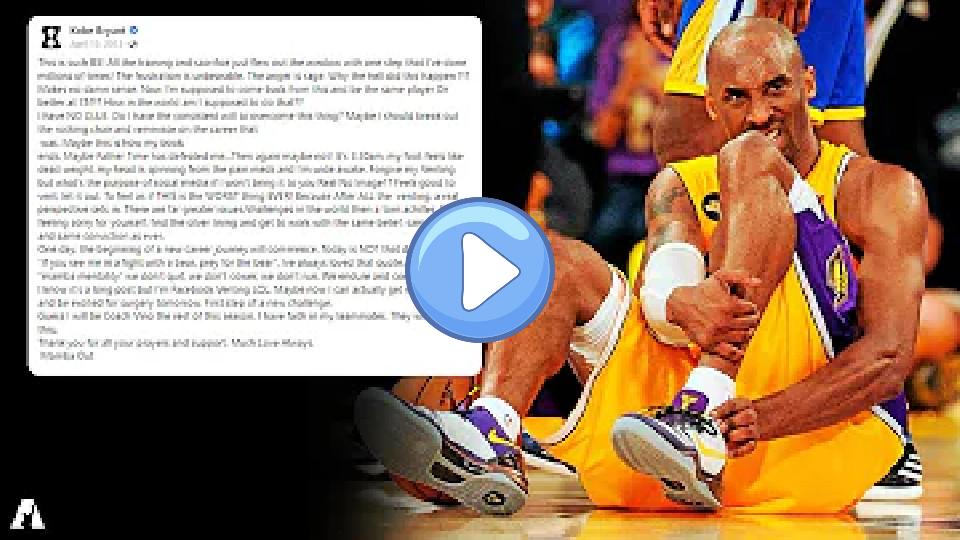
Dahntay Jones intentionally injured Kobe Bryant.
Kobe Bryant gets injured during a game after missing a shot. He appears to hurt his left ankle, and medical staff come to assist him. Despite the pain, it's noted that if anyone can battle through it, it's Kobe.
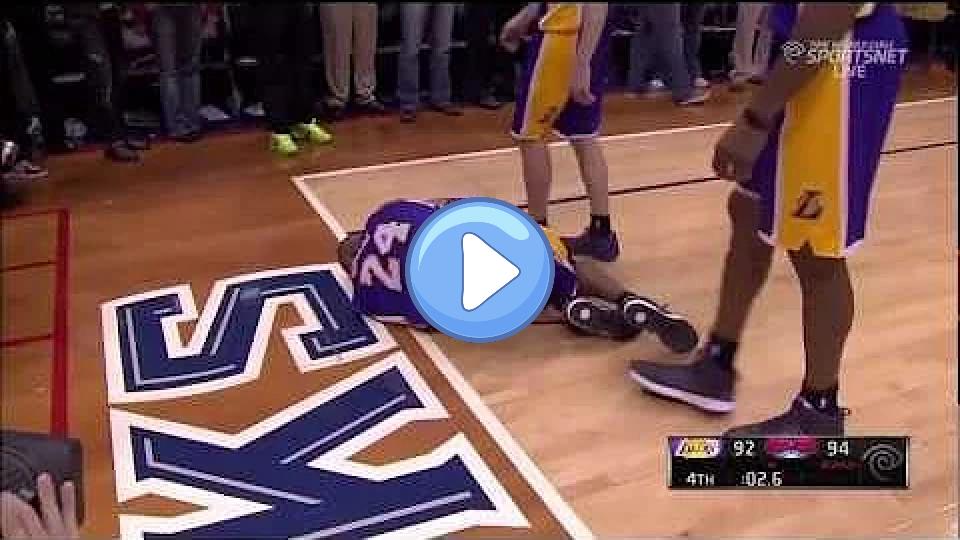
Kobe Bryant suffers leg contusion injury during Los Angeles Lakers vs. Sacramento Kings preseason game.
Los Angeles Lakers guard Kobe Bryant suffered a left lower leg contusion during a preseason game against the Sacramento Kings after tripping over the foot of Rondo. He left the game and headed to the locker room.
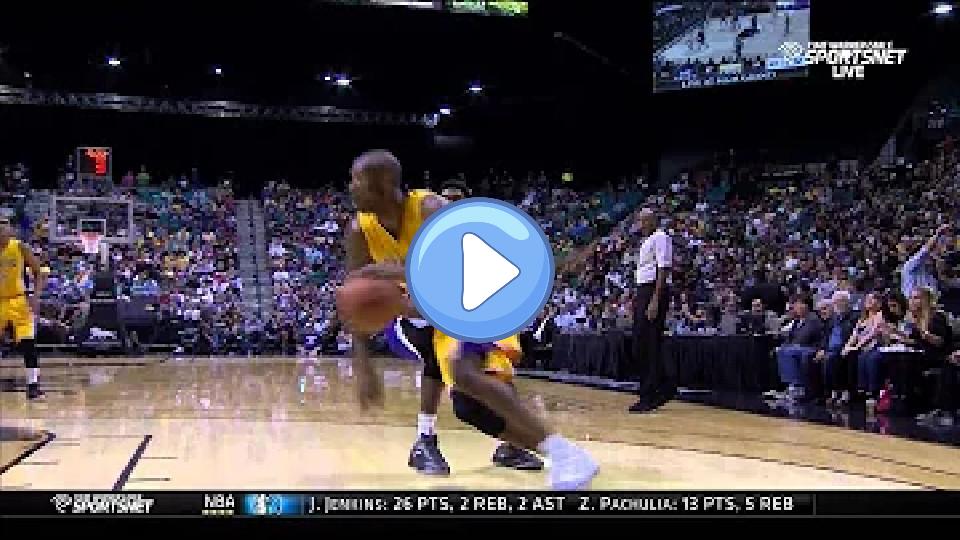
The Day Kobe Bryant Showed LeBron James Who Is the Best
The video discusses the legendary rivalry between Kobe Bryant and LeBron James, highlighting their epic matchups and individual achievements. Both players are celebrated as two of the best in NBA history, with Bryant winning five championships with the Lakers and LeBron securing four titles with the Cavaliers, Heat, and Lakers. Although they never faced each other in the NBA Finals, their regular-season battles were memorable. The video recounts their final matchup on March 10, 2016, where Bryant scored 26 points against LeBron's 24. The narrative also touches on their friendship, mutual respect, and how they pushed each other to excel. It concludes by noting their significant impact on and off the court, with Bryant's career achievements and LeBron's financial success.
